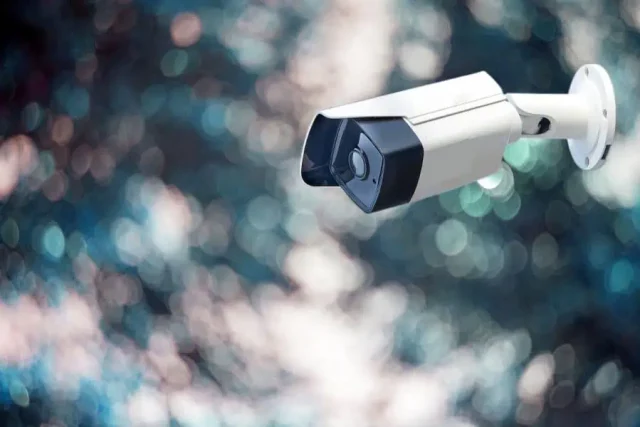In today’s increasingly interconnected world, businesses face many security challenges. Protecting assets, ensuring employee safety, preventing theft, and deterring criminal activities are all critical concerns. This is where closed-circuit television (CCTV) systems come into play. Video surveillance has proven to be a powerful tool in safeguarding businesses of all sizes and industries. This article will explore the power of CCTV and how it can enhance security, deter threats, and provide invaluable evidence when needed.
Deterrence And Prevention
One of the primary benefits of CCTV systems is their deterrent effect. The mere presence of visible cameras can significantly reduce the likelihood of criminal activities and unwanted behavior. Potential intruders, vandals, or shoplifters are less likely to target a business with a visual surveillance system. The knowledge that their actions are being recorded and can be used as evidence is a strong deterrent. Reputable comprehensive security maintenance and takeover service providers recommend that you carefully consider the placement of CCTV cameras to maximize their deterrent effect. High-traffic areas, entrances, exits, parking lots, and rooms with valuable assets should be adequately covered. Ensure the cameras are visible, showing that the premises are under surveillance.
Display prominent signs indicating the presence of video surveillance. These signs serve as an additional visual reminder to potential wrongdoers that their actions are being monitored, further discouraging illicit activities. In addition to on-site cameras, consider integrating remote monitoring capabilities. Remote monitoring allows you to monitor your premises in real time from any location. This feature can provide an added layer of deterrence and enable quick response to suspicious activities.
Enhanced Safety And Incident Response
CCTV systems deter criminal activities and play a crucial role in enhancing safety within business premises. By monitoring activities in real-time and recording incidents, businesses can effectively respond to potential safety concerns. Consider the following aspects:
- Employee Safety: Video surveillance helps create a safe working environment for employees. Cameras can be strategically placed to monitor areas where employee safety is a concern, such as parking lots, stairwells, or isolated sections of the premises. In the event of an incident, CCTV footage can provide valuable evidence for investigations.
- Emergency Situations: CCTV systems assist in managing emergencies effectively. In a fire, accident, or other emergency, cameras can aid emergency responders by providing real-time visuals of the situation, helping them make informed decisions and potentially saving lives.
- Incident Investigation: Should an incident occur, having a CCTV system in place provides an invaluable resource for investigations. Video footage can identify perpetrators, document the sequence of events, and provide crucial evidence in legal proceedings.
Theft Prevention And Asset Protection
Theft can have a significant impact on a business’s bottom line. Implementing a CCTV system can help prevent theft and protect valuable assets. CCTV cameras can actively deter robbery and shoplifting. Companies can identify suspicious behavior and take immediate action by monitoring high-risk areas such as retail floors, stockrooms, or cash registers.
CCTV systems can also help monitor employee activities and prevent internal theft or misconduct. By creating a culture of accountability, employees are aware that their actions are being recorded, reducing the likelihood of dishonest behavior. Businesses with valuable assets, such as equipment, inventory, or artwork, can benefit from CCTV systems that focus on asset monitoring. Cameras can be strategically positioned to monitor restricted areas, storage facilities, or locations with high-value items, providing an added layer of security.
Documentation And Evidence
Having documented evidence is essential for investigations, legal proceedings, and insurance claims in an incident or security breach. CCTV systems provide a reliable source of documentation and proof because their footage allows businesses to reconstruct incidents accurately. The recorded video can be reviewed to understand the sequence of events, identify individuals involved, and determine the cause or factors contributing to the incident.
CCTV footage can provide clear visuals of the perpetrators of theft, vandalism, or other criminal activities. This evidence is invaluable for identifying and apprehending individuals involved and preventing future incidents. CCTV footage can also help resolve disputes and conflicts by providing an objective account of events. Reviewing the recorded footage can help establish the facts and reach a fair resolution, whether it’s a customer complaint or an employee dispute. When insurance claims are necessary, CCTV footage can serve as crucial evidence. For example, in the case of property damage, accidents, or liability claims, video evidence can support the claim and help expedite the insurance process.
Remote Monitoring And Accessibility
Advancements in technology have made CCTV systems more powerful and accessible than ever before. Remote monitoring and accessibility features offer businesses greater flexibility and convenience in managing their security systems. It allows business owners or security personnel to monitor their premises in real-time from any location. This capability provides peace of mind, as they can actively observe activities, respond to potential threats, and coordinate with on-site personnel or law enforcement when necessary. With mobile applications and cloud-based platforms, CCTV systems can be accessed from smartphones, tablets, or other internet-connected devices. This accessibility ensures business owners can stay connected and informed even when away from the premises.
Legal And Ethical Considerations
While CCTV systems offer numerous benefits, navigating legal and ethical considerations is vital to ensure compliance and protect individual privacy. Consider the following guidelines:
- Compliance with Laws and Regulations: Understand and comply with local laws and regulations concerning video surveillance, data privacy, and CCTV systems. Consult legal professionals to ensure your CCTV system meets applicable legal requirements.
- Notice and Consent: Display clear signage indicating the presence of CCTV surveillance to inform individuals that their actions are being recorded. This helps maintain transparency and addresses privacy concerns.
- Data Protection and Retention: Develop policies and procedures for data protection, retention, and secure disposal of CCTV footage. Safeguard the recorded data to prevent unauthorized access or misuse and establish retention periods that align with legal requirements and operational needs.
- Ethical Use: Use CCTV systems ethically and responsibly. Avoid using surveillance for purposes other than security, and ensure that the surveillance focuses on public areas rather than invading private spaces.
CCTV systems have become indispensable tools for businesses seeking to enhance security, deter threats, and protect their assets. From preventing criminal activities to providing valuable evidence, CCTV systems offer a range of benefits that can significantly safeguard businesses. When implementing a CCTV system, companies should carefully plan camera placement, inform individuals about surveillance, adhere to legal and ethical considerations, and prioritize data protection and privacy. By following these guidelines, businesses can harness the power of CCTV effectively.














